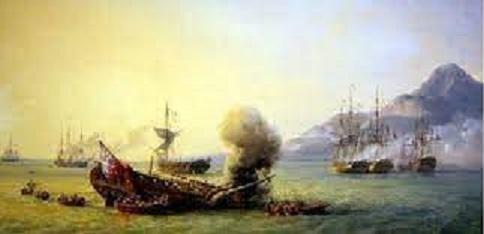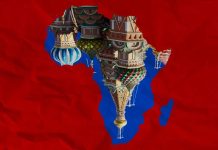Africa-Press – Mauritius. The establishment of the Truth and Justice Commission offers the Mauritian nation a rare opportunity to gain a deeper understanding of the social experience of the slaves and of the indentured labourers during the colonial era.
Furthermore, during the course of the next two years, the work of the Commission also provides Mauritian historians and scholars with a unique opportunity to continue with their archival research which will shed new light on important aspects of the history of slavery and indenture.
At the same time, it should be noted that the historical investigations of the Truth and Justice Commission will be the continuity of an already established tradition of historical research on slavery and indenture which started in Mauritius more than three decades ago.
● Traditional Historiography During most of the nineteenth and first half of the twentieth centuries, the Mauritian slaves, maroons, indentured labourers and vagrants have never been at the centre of traditional Mauritian historiography which had long been the exclusive domain of pro-planter/conservative Mauritian historians.
In general, traditional historians, like Albert Pitot and Auguste Toussaint, have perpetuated a historically inaccurate image of the Mauritian slaves, maroons, indentured workers and vagrants as being docile, stupid, criminals, and apathetic.
For many decades, historians have portrayed Mauritian slavery as being mild and less harsh than in other slave colonies such as Jamaica, the Cape Colony, and the French Caribbean.
One good example would be from Karl Noel who tried to show in his post-graduate thesis at Sorbonne University in Paris, in 1953, that slavery in Isle de France was milder than in the French colonies in the Americas.
Three years earlier, in 1950, Dr. K. Hazareesingh published his first edition on the history of Indians in Mauritius. Unfortunately, his work lacked a historically accurate account of the history and social experience of the indentured workers in our country.
In Mauritius, during the mid-20th century, just like in the historiographies of Guyana, Trinidad, Jamaica, the other British Caribbean islands, and in South Africa, the struggle and the social experience of the slaves and indentured labourers was relegated to history?s underside.
● The New Historians Until more than thirty years ago, the study of slavery, maroonage, indenture system and vagrancy were largely overlooked because they were not considered to be important themes for research and for the writing of the history of Mauritius.
It was only during the 1970s and after that the first attempts were being made to restore the slaves, the maroons, the indentured workers and the vagrants to their rightful place as active contributors to the social and economic development of our country.
Over the past three decades, a new trail has been blazed by a new group of Mauritian and foreign historians. This new group of scholars is known today as the ?new historians?.
It is largely thanks to them that extensive research was being undertaken which shed new light on the slaves, maroons, indentured workers and the vagrants in Mauritius between the 1630s and 1920s.
The new historians were mostly social historians who employed new methodologies and consulted archival sources on slavery, maroonge, the indenture system and vagrancy which were largely ignored.
In the process, they produced new books, theses, and articles on slavery and indenture. Between the 1970s and 1980s, they began writing about the lives, actions, and worldview of the slaves and indentured labourers.
Essentially, they focused on their resistance against inhumane working and living conditions, their struggle for their social and economic rights and their determination to secure their individual freedom.
Ever since the 1970s, the extensive research, the new methodological approach, and the academic works of the new historians have paved the way for Mauritian slaves, maroons, indentured workers and vagrants to occupy an extremely important place in modern Mauritian historiography.
In fact, these scholars allowed for an opportunity to reinstate the slaves and indentured labourers in their rightful place in Mauritian history which for too long has been denied to them by traditional historians as active agents and participants in the historical process.
As a result, the new historians have allowed Mauritians to ?reappropriate? as well as to ?revalorize? their history which is an important step in nation-building.
The work of the Truth and Justice Commission will make a major contribution to more than three decades of historical scholarship on slavery and indenture if it is well planned and well organized within a reasonable time frame.
At the same time, it is the sincere wish of one and all that the investigations and findings of the Commission will enable Mauritian citizens and Mauritian scholars to continue the process of reappropriating and revalorizing their history. After all, this is the ?devoir de mémoire? which we owe to our ancestors who were brought to Mauritian shores as slaves and indentured labourers.
For More News And Analysis About Mauritius Follow Africa-Press







